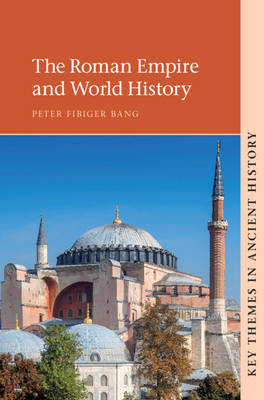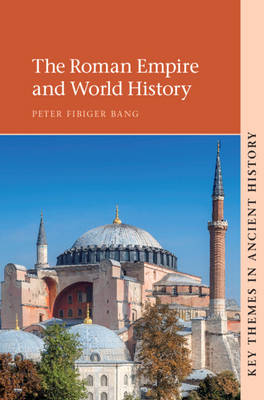
- Afhalen na 1 uur in een winkel met voorraad
- Gratis thuislevering in België vanaf € 30
- Ruim aanbod met 7 miljoen producten
- Afhalen na 1 uur in een winkel met voorraad
- Gratis thuislevering in België vanaf € 30
- Ruim aanbod met 7 miljoen producten
Zoeken
Omschrijving
How do we fit the Roman Empire into world history? Too often the empire has simply been conceived of in terms of the West. But Rome was too big to be squeezed into a purely European model; her empire bestrode three continents. Peter Fibiger Bang develops a radical new world history framework for the Roman Empire, presenting it as part of an Afro-Eurasian arena of grand empires that dominated the shape of history before the forces of globalization and industrialization made the world centre on Europe from the eighteenth century onwards. It was a world before East and West. The book traces surprising cultural connections and societal similarities between Rome and the other vast empires of Afro-Eurasia. Whether we look at war-making, slavery, empire formation, literary culture or intercontinental trade and rebellion, Rome is best approached in its Afro-Eurasian context.
Specificaties
Betrokkenen
- Auteur(s):
- Uitgeverij:
Inhoud
- Aantal bladzijden:
- 254
- Taal:
- Engels
- Reeks:
Eigenschappen
- Productcode (EAN):
- 9781009013727
- Verschijningsdatum:
- 30/10/2025
- Uitvoering:
- Paperback
- Formaat:
- Trade paperback (VS)
- Afmetingen:
- 152 mm x 229 mm
- Gewicht:
- 340 g

Alleen bij Standaard Boekhandel
+ 67 punten op je klantenkaart van Standaard Boekhandel
Beoordelingen
We publiceren alleen reviews die voldoen aan de voorwaarden voor reviews. Bekijk onze voorwaarden voor reviews.








